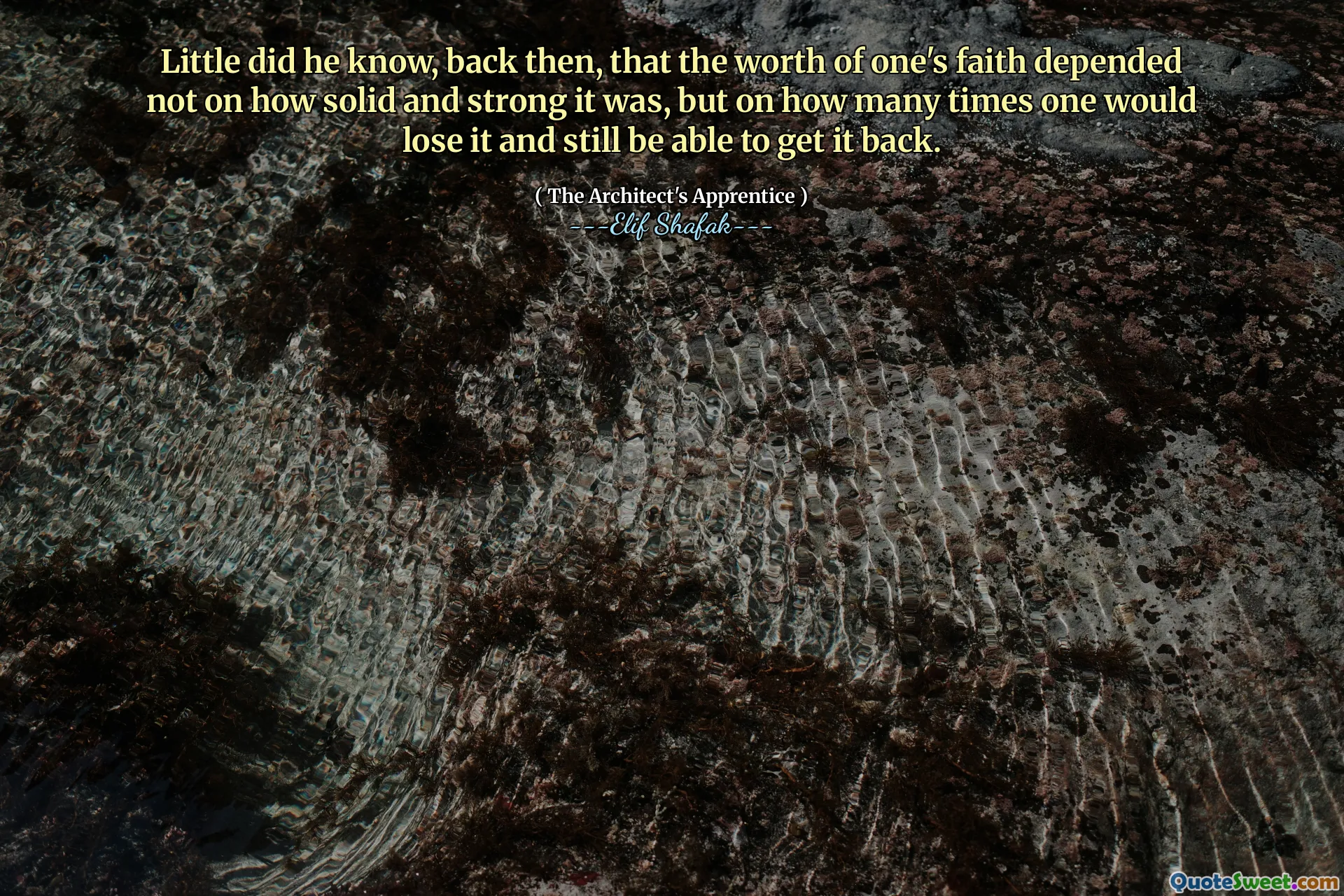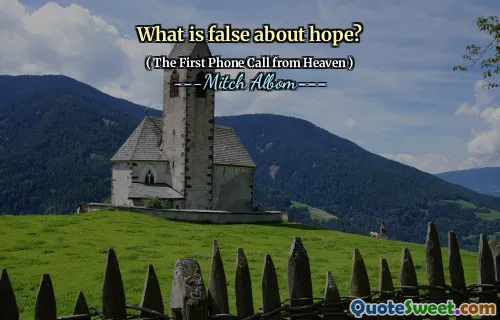
Little did he know, back then, that the worth of one's faith depended not on how solid and strong it was, but on how many times one would lose it and still be able to get it back.
This quote delves deeply into the nature of faith and resilience, offering a profound perspective that challenges conventional notions of strength. Typically, strength is seen as an unyielding and unwavering quality, something linear and consistent. However, the quote suggests that true worth lies not in an unbreakable faith but in the courage and capacity to recover it repeatedly after losing it. This cyclical process of falling and rising again is a powerful metaphor for human experience in general. Faith here can be understood not only in a religious or spiritual sense but also as a broader concept encompassing trust, conviction, and hope.
The idea of losing and regaining faith resonates strongly with the human condition because failure, doubt, and loss are integral to personal growth. Often, it is through experiences of vulnerability and uncertainty that one gains a deeper understanding of oneself and the world. This ongoing reconciliation with faith reflects a dynamic rather than static quality of the human spirit. Each time faith is restored, it may even become more authentic, shaped by experience rather than blind certainty.
In many ways, this quote encapsulates resilience—not as mere endurance but as an active process of rebuilding and reclaiming one's belief in the face of adversity. It speaks to the strength found not in perfection but in perseverance. Such a perspective encourages compassion for ourselves and others when confronted with doubt or loss. Ultimately, it reminds us that the value of faith derives from the journey it embarks on, not the absence of obstacles it faces.
This thought is beautifully aligned with Elif Shafak's narrative style in "The Architect's Apprentice," which often explores the nuances of human experience, spiritual depth, and the complexity of faith in both personal and societal realms.






